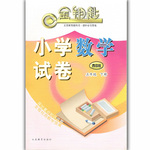题目内容
Years ago a farmer owned the land along the Atlantic seacoast. He constantly advertised for 1 hands. Most people were reluctant (不情愿) to work on a 2 along the Atlantic. They dreaded the awful 3 that raged across the Atlantic,wreaking havoc (浩劫,灾难) on the buildings and crops. As the farmer 4 applicants for the job,he 5 a steady stream of refusals. 6 ,a short,thin man,well past middle age,approached the farmer. “Are you a good farm-hand?” the farmer asked him.
“Well,I can 7 when the wind blows ,” answered the 8 man.
Although 9 by this answer,the farmer,desperate for 10 ,hired him. The man worked well around the farm,11 from dawn to dusk,and the farmer felt satisfied with the man’s work.
Then one night the wind howled loudly in from offshore.
12 out of bed,the farmer grabbed (抓起) a lantern and 13 next door to the hired hand’s sleeping quarters. He 14 the little man and yelled, “Get up!A storm is coming!Tie things down before they are blown away!”
The little man 15 in bed and said 16 ,“No,Sir.I told you,I can sleep when the wind blows. ”
Enraged by the response,the farmer meant to 17 him on the spot. Instead,he hurried outside to prepare for the storm. To his 18 ,he discovered that all of the hay-stacks (干草操) had been covered with tarpaulins (油布).The cows were in the barn,the chickens were in the coops (鸡笼) ,and the doors were barred. The shutters were tightly secured. Everything was tied down. Nothing could be blown away.
The farmer then understood what his hired hand 19, so he also returned to his bed to sleep 20 the wind blew.
( ) 1. A. hired B. applied
C. taken D. got
( ) 2. A. field B. garden
C. farm D. park
( ) 3. A. winds B. storms
C. hurricane D. flood
( ) 4. A. interviewed B. trained
C. saw D. visited
( ) 5. A. accepted B. received
C. refused D. offered
( ) 6. A. Surprisingly B. Luckily
C. Obviously D. Finally
( ) 7. A. work B. do
C. sleep D. help
( ) 8. A. strong B. young
C. little D. kind
( ) 9. A. pleased B. satisfied
C. surprised D. puzzled
( ) 10. A. help B. pleasure
C. man D. work
( ) 11. A. happy B. sad
C. tired D. busy
( ) 12. A. Coming B. Leaving
C. Jumping D. Going
( ) 13. A. ran B. rushed
C. went D. moved
( ) 14. A. beat B. shook
C. shouted D. stroke
( ) 15. A. put on B. rolled over
C. got up D. sat
( ) 16. A. firmly B. happily
C. delightly D. angrily
( ) 17. A. kill B. instruct
C. fire D. inform
( ) 18. A. surprise B. joy
C. regret D. sadness
( ) 19. A. expected B. prepared
C. offered D. meant
( ) 20. A. before B. as
C. after D. while
[文章大意]很多年前,一个农场主在大西洋沿岸有一块土地,他经常贴广告雇用人手。可是,很多人都不愿意在大西洋岸边的农场干活,他们害怕大西洋上空剧烈的风暴会破坏房屋和庄稼。所以当这个农场主招工面试时,得到的都是否定的答案,直到一个矮小、瘦弱的男人出现。本文中的矮小农夫告诉我们一个人生哲理:凡事我们要提前做好准备,而不是等到危险和灾难到来后才拼命地临时应对。
1. A根据文意可知,他为农场雇用帮手。
2. C根据文意可知是在农场工作。
3. B根据后文可知是来自大西洋上的暴风雨让人们恐惧。
4. A因为要招聘帮手所以需要面试。
5. B因为人们都知道大西洋沿岸的可怕的暴风雨,所以农夫得到了一连串的拒绝。
6. D终于有个瘦小的、远远超过中年的人来到农场主那里。
7. C当农场主问他"你是个好的农场帮手吗?"时,他给出了出乎意料的回答:"暴风雨来的时候我能睡觉。"
8. C根据前文的short,thin可知选little,
9. D农场主虽然对他的回答很不解,但是还是雇用了他,因为没有其他的选择。
10. A根据文意可知农场主急需帮忙。
11. D由后文的satisfied可知,帮手从早忙到晚。
12. C由于暴风雨的到来,农场主迅速从床上跳起来。此处表示速度之快。
13. B农场主迅速冲到帮手的住处。
rush表示动作急促。
14. B农场主把帮手摇醒。
15. B帮手在床上翻了一下身没有起来。
16. A帮手坚定地说:"不,先生。我告诉过你,暴风雨来的时候我能睡觉。"
17. C农场主很气愤,打算当场解雇他。
18. A使农场主感到吃惊的是,一切都准备好了。
19. D这时农场主才明A帮手所说的话的含义。
20. D由于一切都准备好了,农场主也只有回去睡觉了。

 金钥匙试卷系列答案
金钥匙试卷系列答案